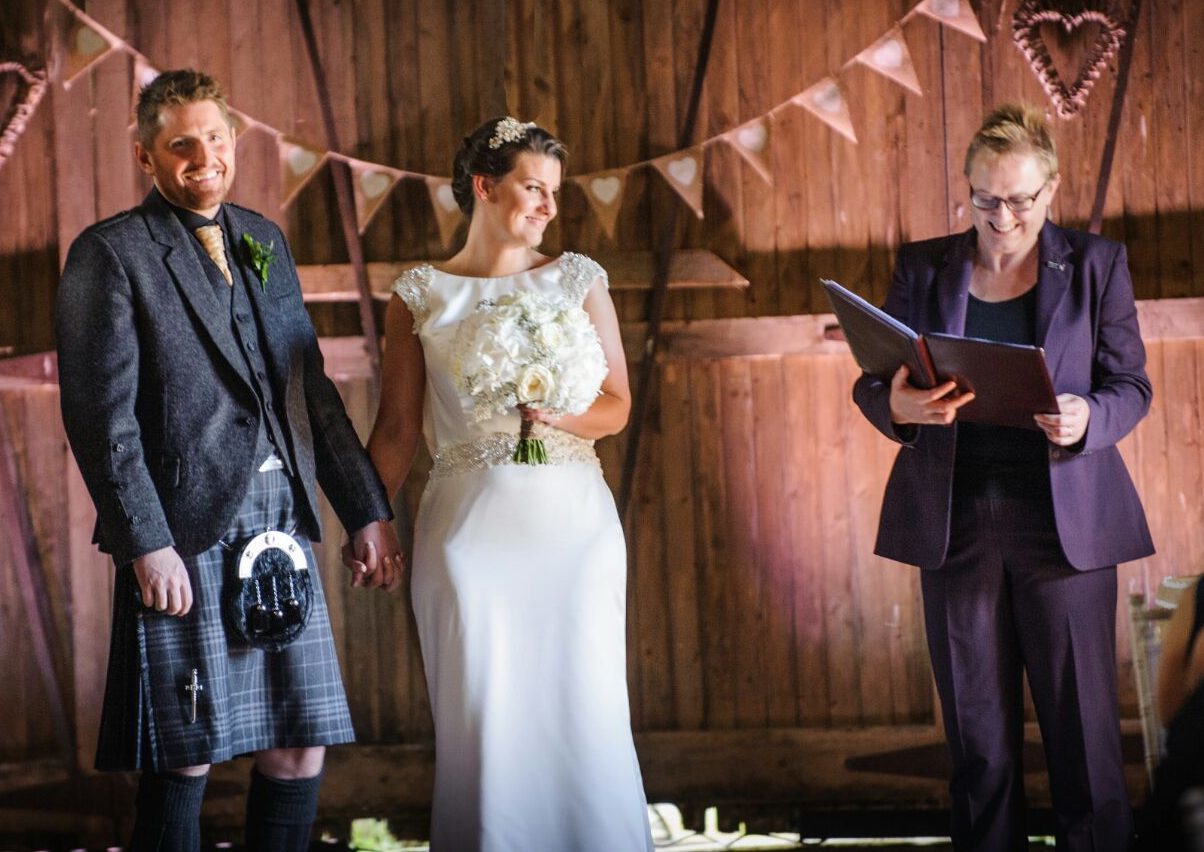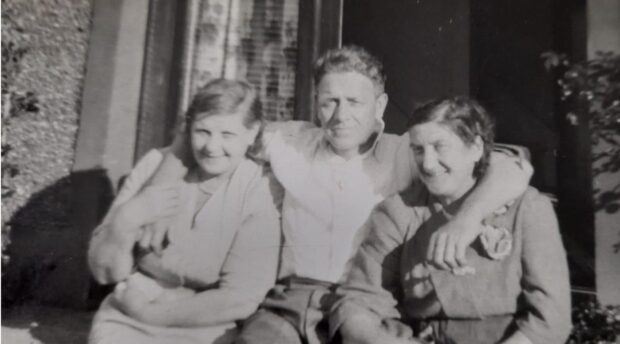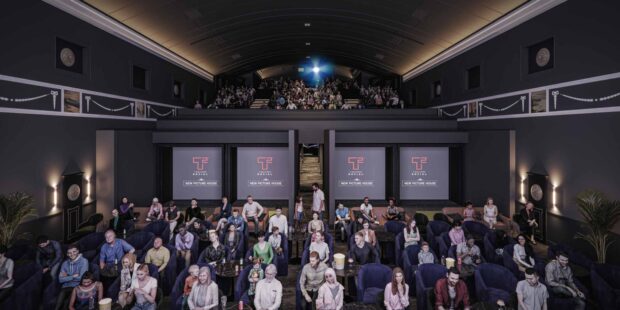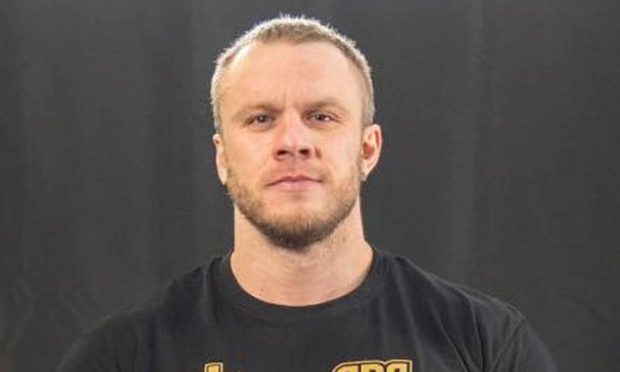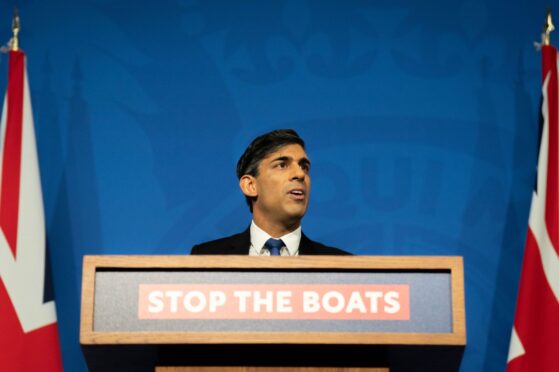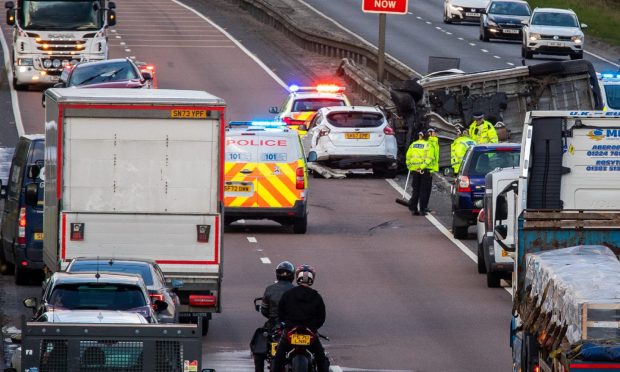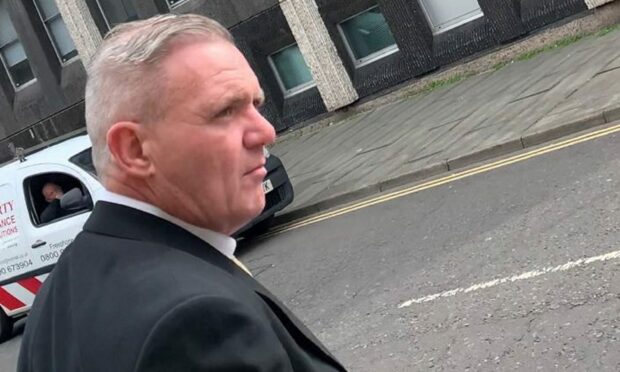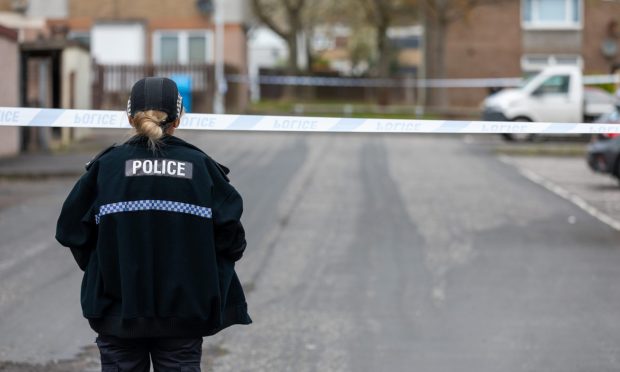The Humanist Society of Scotland has become the first non-religious organisation to be authorised to carry out wedding ceremonies.
While humanist weddings have been growing in popularity since first being legalised in 2005, the society’s celebrants previously had to gain approval from the Registrar General.
But the Scottish Parliament’s decision to prescribe the Humanist Society of Scotland (HSS) under the Marriage (Scotland) Act 1977 has now given celebrants the same authority as priests and ministers.
Registered celebrant Jane Bechtel said the move was about more than weddings.
“It puts the Humanist Society and humanist values, ethics and beliefs on a par with religious ethics and beliefs in Scotland,” she said.
“The Humanist Society is not just here for weddings. It’s part of the social structure of Scotland and that’s what this recognition says.”
In addition to conducting weddings and funerals, HSS also campaigns for legislative changes and was involved in bringing in the new law to allow same sex marriages.
With humanist weddings not recognised south of the border, families have been travelling to Scotland for their nuptials.
“We have a lot of couples coming up from England and Wales to have humanist weddings in Scotland,” said Ms Bechtel.
“In England and Wales, the number of weddings has been going down, whereas the number of weddings in Scotland is actually rising.
“While we can’t make the claim that it’s all about humanism, I think in the broader context it’s because registrars can now conduct weddings anywhere and it’s a lot to do with the fact people can get married where they want and how they want, and in a ceremony which is meaningful to them.”
Since 2005, the popularity of humanist weddings has soared with more than 4,200 ceremonies taking place in 2015.
Lynsey Kidd, who is head of ceremonies and chaplaincy at HSS said: “We are delighted to be recognised for our years of dedicated hard work representing the humanist community here in Scotland.
“Our HSS registered celebrants are trained to a high professional standard, and undertake regular development to ensure that they can deliver a first class service.
“This new status reflects the Scottish Government’s confidence in HSS to authorise their own celebrants and provides our members choosing an HSS registered celebrant even more assurance that with us they are in safe hands.”
